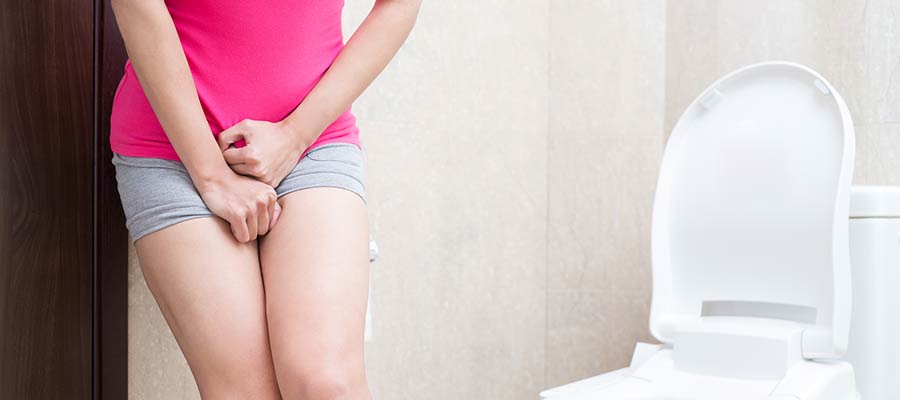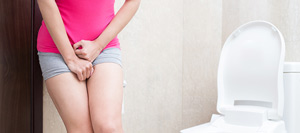Urinary Incontinence Treatment Specialist Q&A
Urinary incontinence is a prevalent issue in which the bladder loses control. It occurs among the elderly, women who have undergone menopause, or given birth. The treatment options vary depending on the severity of the underlying cause. Dr. Marc Jean-Gilles, DO, FACOG at Abundant Life Healthcare may suggest dietary alterations, prescribe medication, or recommend surgery for repairing pelvic floor muscles. For more information, contact us today or book an appointment online. We are conveniently located at 601A Professional Drive, Suite 370, Lawrenceville, GA 30046.




Table of Contents:
What are the 4 types of urinary incontinence?
How can I reduce urinary incontinence?
Can urinary incontinence be fixed?
What is the main cause of incontinence?
Urinary incontinence is a common condition that affects people of all ages. There are four main types of urinary incontinence, each with its distinct characteristics:
• Stress incontinence – This occurs when physical activities, such as laughing, sneezing, or lifting, put pressure on the bladder and cause urine leakage.
• Overflow incontinence – Overflow incontinence occurs when the bladder does not empty during urination, leading to constant or frequent dribbling of urine. It can result from an obstruction or weakness in the bladder muscles.
• Urge incontinence – Also known as overactive bladder, this type of incontinence involves a sudden and intense urge to urinate, followed by involuntary urine leakage. It can be caused by an overactive detrusor muscle in the bladder.
• Functional incontinence – This is not related to problems with the urinary system but is instead caused by physical or cognitive limitations that prevent a person from reaching the bathroom in time.
Each type of urinary incontinence requires a different approach to management and treatment.
Reducing urinary incontinence significantly improves your quality of life. Some helpful strategies to manage and minimize urinary incontinence include:
• Maintain a healthy weight – Excess weight puts added pressure on the bladder, so maintaining a healthy weight will alleviate stress on the pelvic region.
• Pelvic floor exercises – Strengthening the pelvic floor muscles through exercises such as Kegels can improve your bladder control.
• Limit caffeine and alcohol – Both caffeine and alcohol can irritate the bladder, so reducing their intake can reduce urinary urgency and frequency.
• Stay hydrated – While limiting fluids can reduce the frequency of urination, it’s essential to stay adequately hydrated to maintain overall health. Moderation is key.
• Wear absorbent pads or garments – These provide comfort and confidence during daily activities.
• Medications and medical devices – Consult a healthcare professional about medications and devices that can help you manage urinary incontinence.
Yes, urinary incontinence can often be effectively managed and, in some cases, completely improved. While the exact treatment approach depends on the root cause of incontinence, some common options include:
• Lifestyle changes – For mild cases, lifestyle adjustments such as pelvic floor exercises, weight management, and dietary modifications can be sufficient to reduce or eliminate symptoms.
• Physical therapy – Pelvic floor physical therapy, guided by specialized therapists, is used to strengthen pelvic muscles and improve bladder control.
• Medications – Certain medications, such as anticholinergics, can be prescribed to relax bladder muscles or reduce urinary urgency.
• Medical devices – In some instances, medical devices such as pessaries or urethral inserts can be used to provide support and alleviate symptoms.
• Nerve stimulation – Treatments such as sacral nerve stimulation and percutaneous tibial nerve stimulation can be used to regulate nerve signals and improve bladder function.
• Surgical interventions – For severe cases or when other treatments are not effective, surgical options such as sling procedures or bladder neck suspension may be recommended.
While not all cases of urinary incontinence can be completely “fixed,” many patients experience significant improvement in their symptoms and enjoy a better quality of life through comprehensive treatment and management.
Weakened pelvic floor muscles, usually resulting from factors such as childbirth, obesity, or the natural aging process, can lead to stress incontinence. This type of incontinence is characterized by urine leakage during activities that increase pressure on the abdomen, such as coughing, laughing, or lifting heavy objects.
An overactive bladder can cause urge incontinence, where sudden and intense urges to urinate lead to involuntary leakage. This condition is triggered by bladder muscle overactivity and certain neurological conditions. Bladder dysfunction can result in various types of incontinence, such as overflow incontinence, where the bladder doesn’t empty.
It’s important to identify the specific cause of incontinence for an effective treatment approach. A urinary incontinence treatment specialist is needed to provide an accurate diagnosis and develop a personalized management strategy. Our team helps patients achieve better bladder control to improve their quality of life.
Our board-certified doctor, Dr. Marc Jean-Gilles, DO, FACOG at Abundant Life Healthcare, has vast expertise in diagnosing and treating incontinence. For more information, contact us today or book an appointment online. We are conveniently located at 601A Professional Drive, Suite 370, Lawrenceville, GA 30046. We serve patients from Lawrenceville GA, Suwanee GA, Snellville GA, Duluth GA, Dacula GA, Lilburn GA, Loganville GA, Auburn GA, and surrounding areas.
Check Out Our 5 Star Reviews


Additional Services You May Like

Additional Services You May Like
- Obstetrics
- Pregnancy
- Gynecologist
- Birth Control
- Labiaplasty
- Microblading
- Weight Loss
- Semaglutide GLP-1
- Pap Smears
- Pelvic Pain
- Laser Hair Removal
- In House Ultrasound (Including 3D)
- Vaginal Birth After C-Section (VBAC)
- Pregnancy As High Risk
- Multiple Gestations
- Postpartum Counseling
- 24hour/365days On Call Service
- Annual Exam
- Abnormal Uterine Bleeding
- Management Of Endometriosis
- Ultrasound
- Pelvic Organ Prolapse
- Urinary Incontinence
- Perimenopause And Menopause
- Sexual Dysfunction
- Fat Freeze (Like Cool Sculpting)
- Body Contouring
- Ozempic
- Civil Surgeon
- Hormone Replacement Therapy
- Immigration Medicine
- Biote Hormone Pellets
- GLP-1
- Peptide Therapy




